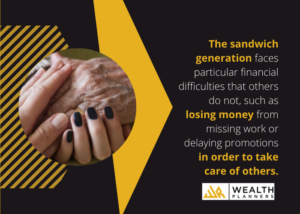By now, you’ve likely heard that we’re in an inflationary environment and you’ve surely noticed almost everything is more expensive. However, are you equally familiar with how economists are feeling about the situation? To the relief of many, the general sentiment among the most influential minds in the global economy, including Federal Reserve Chairman Jerome Powell, is that the type of inflation we’re experiencing is transitory. Compared to its much more sinister sibling, sustained inflation, transitory inflation is generally recognized as a temporary nuisance.
While neither version of inflation should be a considered a welcomed guest at the table, transitory inflation is often the result of specific events that either reduce supply or increase demand for particular goods in the short term. Once supply and demand reconverge towards their natural equilibrium, prices quickly follow suit. On the other hand, if wages skyrocket or expectations about rising inflation become entrenched, inflation becomes more difficult to contain and as a result, evolves from transitory to sustained.
The transitory inflation that began last year was spurred by supply chain disruptions due to COVID-related shutdowns. We first saw this with lumber, where prices reached levels 3-4x the previous year. Then, as boarders and trade remained shuttered, raw material shortages and import restrictions made goods exceptionally more expensive or completely unattainable. With the exception of lumber prices, new vehicles and the related production delays as a result of the semiconductor shortage, are probably the most explicit example of the effect transitory inflation has on our economy.
Though, in general, consumers have little expectation that the supply chain will remain disrupted forever and the goods they want to buy will be difficult to attain in the long run. Similarly, producers are optimistic about their ability to deliver products to consumers in a timely manner and at a reasonable price. These factors are why our inflationary environment is still considered to be transitory. The general consensus, especially among economists, is that producers and consumers are participating in the economy with the expectation that this will pass. Should that change, there is a real possibility the US and global economies could enter a period of sustained inflation.
If the tides shift and it becomes apparent the economy is entering a period of sustained inflation, we have safeguards in place for your portfolio and will adjust your plan accordingly. Existing financial plans have already been designed with higher-than average inflation assumptions, so we feel confident your quality of life will remain unchanged, in the even this transitory inflation evolved into sustained.






